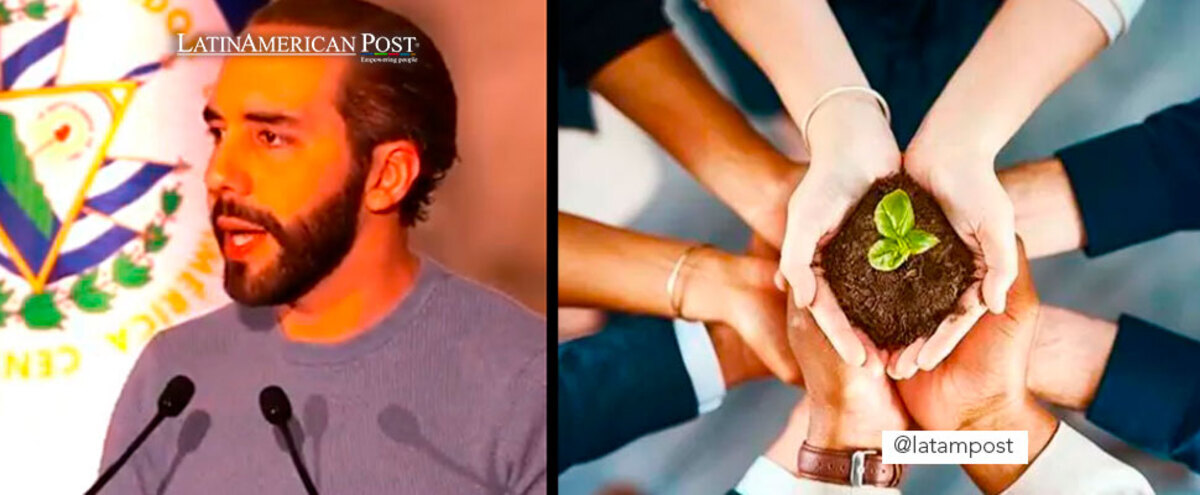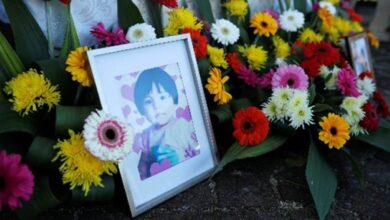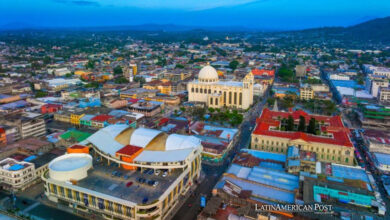Latin America in Short: Bukele’s Security Measure | Uruguay Hosts Environmental Negociations
This week, Bukele has filed another security measure that, according to organizations, violates Human Rights. In more positive news, Uruguay will host negotiations for a plastics treaty. This and more in our weekly summary .

Photos: TW-nayibbukele, Freepik
LatinAmerican Post
Listen to this article
Leer en español: Latinoamérica en resumen: Medida de seguridad y Bukele | Uruguay anfitrión de tratado medioambiental
Nayib Bukele continues to implement security measures to combat criminal gangs and this week has not been the exception. In Russia, on the other hand, laws prohibiting "gay propaganda" are tightening. In better news, Canada will contribute more than 11 million dollars for the manufacture of vaccines in Latin America. And Uruguay will host the negotiations for a treaty that promotes the reduction in the use of plastics. Here we tell you everything.
Controversial security measure of Nayib Bukele in El Salvador
The Salvadoran president unveiled a new security strategy this week. After the offensive against criminal gangs, better known as maras, through a state of emergency, Bukele now ordered a siege of large cities. The leader of the Nuevas Ideas movement expressed that his measure intends to "extract the gang members" who remain free, after the multiple criminals imprisoned during his administration in his war against arms.
In the eight months that its state of emergency has been going on in El Salvador, the security forces have detained more than 58,000 gang members or people linked to criminal gangs. However, several national and international human rights groups have drawn attention to Bukele's controversial measures, which would mark suspects or prisoners as a violation of human rights. Bukele, for his part, has ignored these warnings, which he considers a "soft hand" with criminals.
Also read: Did Nayib Bukele put the Salvadoran economy in check before the fall of Bitcoin?
Russia passes law against “LGBT+ propaganda”
The Russian parliament unanimously approved this week a reform package that expands the scope of the ban on "LGBT+ propaganda" within the Eurasian country. This new norm prohibits any mention of what the Government considers to be “gay”. Within what is considered by the government, references to pedophilia and sex change are included. In this way, none of this may be mentioned in any mass media, including books, theaters, movies or advertising.
Russia is currently undergoing a conservative turn that is fueled by the war in Ukraine and Putin's conservative policies. These elements have given greater power to conservative nationalist political movements. Those who break this new rule must pay penalties of up to approximately $165,000 and the closure of websites. This new law is a reinforcement of the already existing regulations that prohibited “LGBT+ propaganda” to minors. Now, this prohibits it for any type of public. Russian conservatives regard “LGBT+ propaganda” as Western propaganda from the United States and Europe, aimed at destroying the traditional values of the Orthodox Christian Russian family.
Canada will contribute more than 11 million dollars for the manufacture of vaccines in Latin America
The Government of Canada announced that it will contribute US$ 11.2 million to support the initiative of the Pan American Health Organization to produce vaccines in Latin America and the Caribbean. It is about supporting a regional platform, formed in 2021 after the pandemic, so that the region has the capacity to respond autonomously, effectively and quickly with the supply of vaccines and medicines to its population. In Latin America and the Caribbean, the reaction to COVID-19 depended to a large extent on the availability of vaccines from external agents and this made it difficult to respond quickly. "This disparity underscores the need to invest in efforts to diversify the production of vaccines and their components in different countries," said PAHO Director Carissa Etienne.
Negotiations for the largest treaty on plastics will begin next Monday
On November 28, negotiations begin in Uruguay to create a global treaty on the use of plastics. An Intergovernmental Committee will initiate this path of negotiations defined after the Nairobi resolution, which was supported by 175 countries at the United Nations. The idea is that there is a binding agreement that forces countries to commit to the reduction and elimination of plastic, which is one of the biggest pollutants. This agreement is expected to be ready by 2024 and civil organizations and advisory committees will also participate in the process. However, the negotiations are likely to be complex, because behind plastic and its use there are large economic interests.





